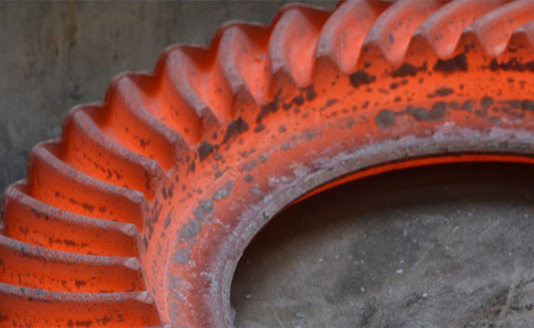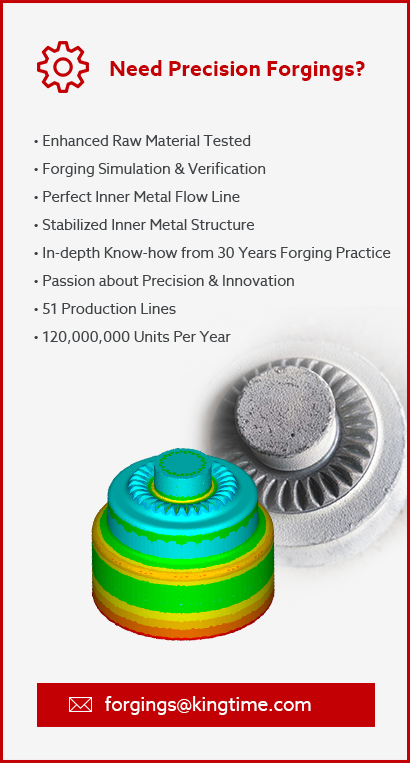Forging Solutions
Kingtime Precision Forging Methods
Best combination of temperature and multiple stations

Materials made of steel are usually heated up to a starting temperature of approx. 1,100 °C. Kingtime carries out closed-die forging in which the dies generate the desired part contour in several stages.

In warm forging, steel is processed at a temperature of between 700 °C and 950 °C. The flow stress is lower than in cold forging; scale and distortion are lower than in hot forging. Thus warm forging allows a wider range of shaping options at a greater level of precision.

Cold forging is a process in which the billets are not preheated, but are forged at room temperature. Due to the fact that shrinkage and scaling do not occur, cold forged components have greater shape and dimensional accuracy than comparable hot forged parts. However, the choice of materials and geometries is more limited than with hot forging. Cold forging is thus suitable for transmission shafts with minimum machining allowances.
The Art of Kingtime Precision Forgings
Combined Experience In Practice & Theory
The Source of your Success
For our customers we are a creative development partner and make an active contribution to achieving technical and economic development goals. Thanks to our broad development know-how, Kingtime can find a suitable solution for your highly specific requirements.
Simultaneous Engineering
Kingtime aims at early customer involvement in the development process. We accompany the customer and provide consultation during all development phases – from the initial part concept to the finished functional assembly.
Simulation and Calculation
As a supplier of know-how, Kingtime has simulation programs which assist in optimizing the topology and design of components and in calculating strength and stiffness values. This allows us to develop parts for the specific application which fulfill requirements and at the same time satisfy the demands of the forging and machining production processes.
Materials
Highly stressed parts also demand precise knowledge of suitable materials. Here, Kingtime has decades of in-house research experience and state-of-the-art laboratory facilities (e.g. scanning electron microscope).
Processes
Optimizing the forged part with respect to the subsequent machining process is achieved at Kingtime with few information interfaces from one source.
Part Inspection
We carry out component inspections on in-house test benches or at service providers, parallel to development or serial production.

